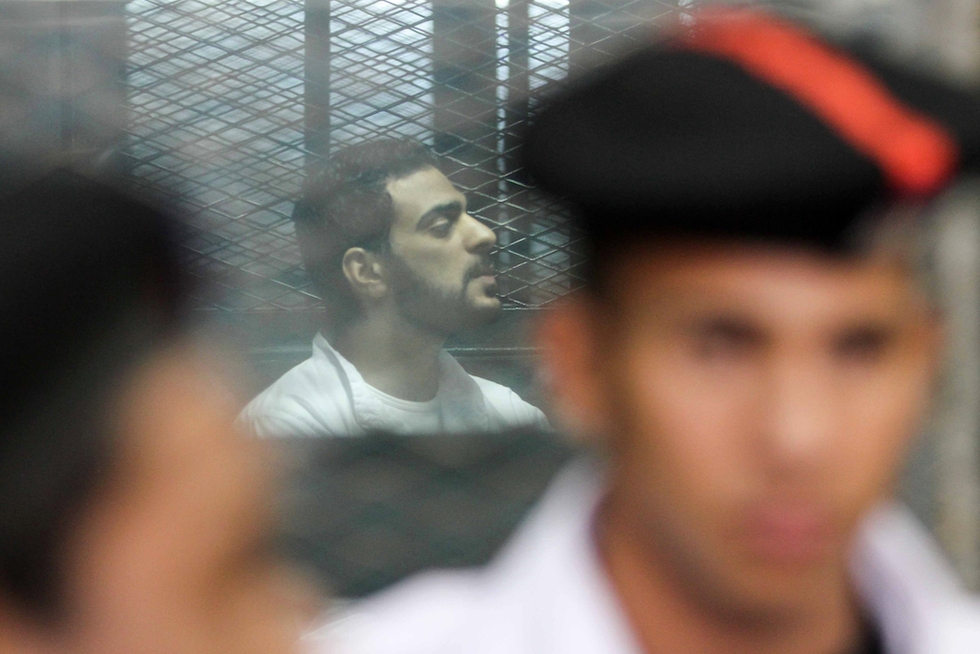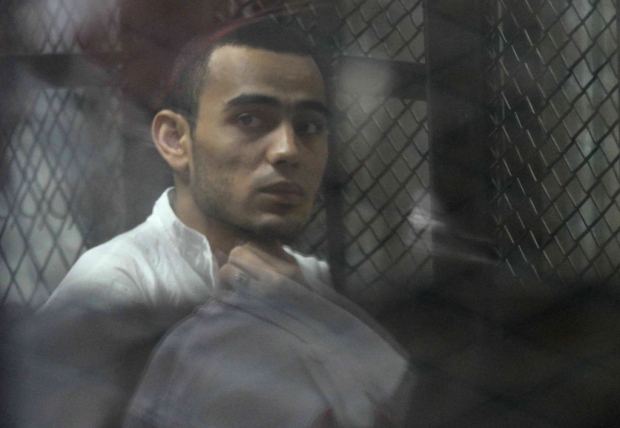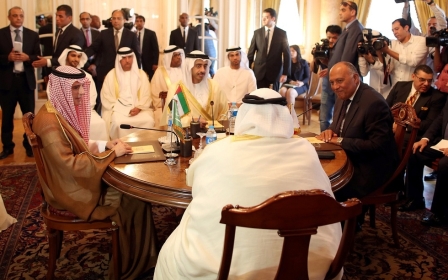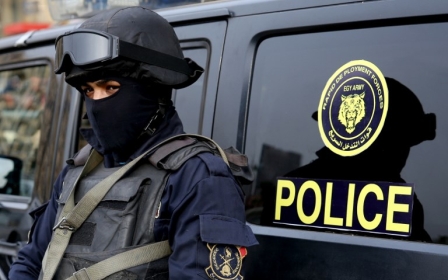Court upholds mass death penalty in Egyptian prosecutor assassination case

CAIRO – An Egyptian court on Saturday upheld the death sentences of 28 defendants accused of assassinating Egypt's top prosecutor, General Hisham Barakat, in a car bomb attack in Cairo in June 2015.
Last month, the court handed the defendants preliminary death sentences and referred their cases to the grand mufti for his consultation and religious approval of the ruling. The grand mufti approved of the capital punishment.
Osama Bayoumy, a lawyer on the defence team, told Middle East Eye that he and his colleagues would appeal.
Fifteen of the defendants were sentenced in absentia while 13 are currently detained. Fourteen more defendants were handed life sentences and 17 more people were sentenced to 10 to 15 years in maximum security prison.
May El-Sebaey's husband, Mohamed El-Ahmedy, was a doctor at a health clinic in the Nile island of El-Waraq.
"We were married for three months and three days - that felt close to perfection," El-Sebaey said as she explained to MEE the shock of her husband's disappearance and, later, her discovery that he was accused of killing the senior official.
"My husband went to work on Saturday, 18 November 2015 and did not come home," El-Sabaey told MEE, saying that he was forcibly disappeared for 121 days before she finally learned of his whereabouts.
Soon after, El-Ahmedy's younger brother, Mahmoud El-Ahmedy, and his friend, Islam Mekawy, went to submit a telegraph stating that El-Ahmedy was missing to Egypt's public prosecution, as is common in cases of enforced disappearance.
"They were then taken too, and now they are defendants in the same case," El-Sabaey said.
His wife insists that El-Ahmedy is innocent and spends her days hoping for his release.
"No one has interacted with my husband without loving him. Every day I discover beautiful stories and anecdotes about him, whether from his friends, or from people who dealt with him by chance," El-Sebaey said.
"He was an over-achiever, modest, and he wanted to specialise in pediatrics."
Egypt accused the Muslim Brotherhood and the Palestinian group Hamas of killing Barakat. Both groups denied the accusations.
"The brutal conspiracy by hired hands to target the public prosecutor Hisham Barakat and assassinate him, where the corrupt and weak-willed forces of evil and tyranny conspired, could only be carried out by an unjust group that has shed innocent blood," Reuters reported Judge Hassan Farid as saying.
El-Ahmedy is one of dozens of people who have been caught up in Egypt's trend of mass death sentences. El-Bayoumy told MEE that there are three more major trials in which people have been handed death sentences. There are six men sentenced in Mansura, one man in Alexandria and four more men in Kafr El-Shiekh.
Local and international rights groups have condemned the mass death sentences and called on Egyptian President Abdel Fattah al-Sisi to put an end to the Mansura trial, in which six men could be executed any time and no appeal can be made. The organisations argued that Egypt issued these death penalties without a fair and transparent trial, and with reliance on "torture-tainted evidence," as noted by Amnesty International.
The Egyptian Court of Cassation upheld the death sentences on 7 June on the grounds that the men are responsible for killing a police guard of a judge sitting on the former president Mohamed Morsi's trial.
"It is extremely worrying that while all six men recanted their forced confessions in court and indicated that they had been obtained under torture, these were still used as the basis for their convictions," a group of United Nations experts said last month.
"This is in clear violation of Article 1 of the Convention against Torture, to which Egypt is a party."
'Cruel, inhuman'
According to rights groups and families of victims, many of the men involved in these trials were forcibly disappeared, held in military camps for months, and tortured for confessions before they were convicted in these trials.
"Regardless of what the men may have been involved in, forcibly disappearing suspects and torturing them into confessing is not justice. The death penalty is the ultimate cruel, inhuman and degrading punishment. No one should be deprived of their right to life, no matter how horrific the crimes they have been accused of are," said Najia Bounaim, North Africa Campaigns Director at Amnesty International in a statement.
Last August, a video spread of defendants standing in court, narrating how they were tortured inside prison until they were made to confess.
Bayoumy explained that the impact of policemen extracting confessions through torture was that victims would often just tell them what they wanted to hear, explaining "give me an electric shock and I'll have you confessing that you killed [assassinated president Anwar] Sadat."
It is extremely worrying that while all six men recanted their forced confessions in court and indicated that they had been obtained under torture, these were still used as the basis for their convictions
- United Nations
"By the testimonies of [some] of those who were with him in Lazoughly [National Security office], he was tortured intensely," El-Sabaey also said of her husband.
Mahmoud Wahdan, whose brother Ahmed Wahdan is also sentenced to death for allegedly assassinating the prosecutor-general, echoed similar concerns of false charges and human rights violations.
On 29 February last year, Wahdan was eating at a restaurant in the suburban city on 6th of October when police in plainclothes took him "in a civilian car without a license plate," and he endured a month of enforced disappearance before finally standing before prosecution, his brother recounted.
"He was not allowed access to a lawyer the first three times he visited the prosecutor's office," Wahdan's brother said.
"Then they eventually took him to the Scorpion prison where he was put in solitary confinement for three months before he was allowed to share a cell with someone else."
El-Sabaey also told MEE about the tough conditions of confinement, saying "my husband has been detained for two years and we have barely visited him five times".
New MEE newsletter: Jerusalem Dispatch
Sign up to get the latest insights and analysis on Israel-Palestine, alongside Turkey Unpacked and other MEE newsletters
Middle East Eye delivers independent and unrivalled coverage and analysis of the Middle East, North Africa and beyond. To learn more about republishing this content and the associated fees, please fill out this form. More about MEE can be found here.





